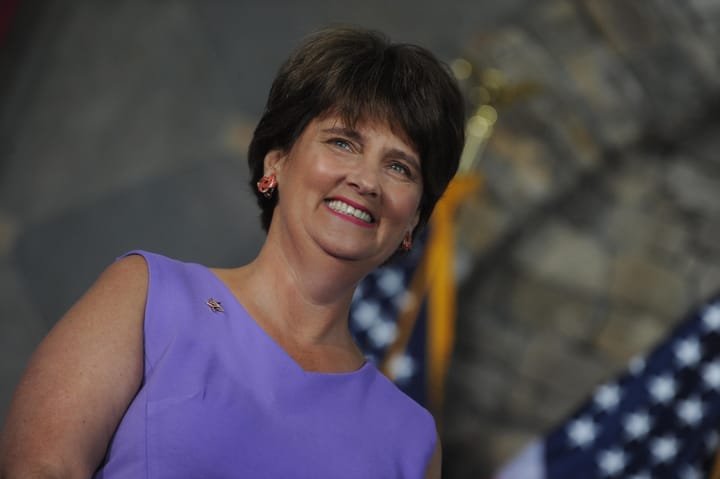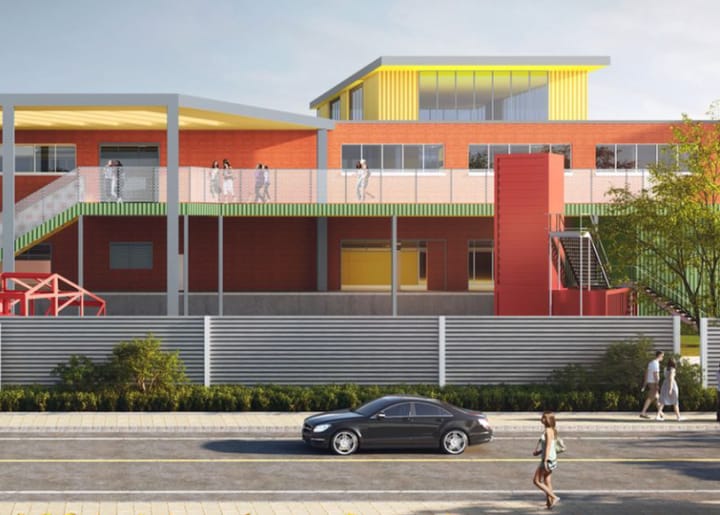
RPS Roundup: Suggested salary increases total $8.7 mil, early literacy achievement, REA contract
Richmond Public Schools hired a consulting company to conduct a review of the division’s compensation and how it compares to neighboring competitors.
Stasey Whichel, project manager with Evergreen Solutions, said that consultants aimed to provide recommendations through the employee data collected that’ll be equitable and unified throughout the system.
The main recommendation was that the division revise its compensation for instructional, non-instructional and leadership positions, which would cost a total of $5.9 to $8.7 million. The suggested increases are for the 2026-27 school year.
Some data points:
- The median length of time employees stayed at RPS was about 7 years.
- About 70% of employees are compensated below the midpoint of their pay ranges, which Whichel says is consistent with the length of time employees are working at RPS.
- 131 employees, who have been at RPS for a very long time, are compensated above the published maximum pay.
- RPS is within the top five compared to neighboring competitors in starting pay.
Whichel said that consultants identified 20 competitors, including school divisions and governments from Chesterfield, Caroline, Henrico and Norfolk Counties, as well as Virginia Commonwealth University and various state agencies.
The study found that RPS provides better starting pay for positions that are easier to fill compared to their competitors. The more competitive the position and the higher the pay, the less competitive RPS is to competitors. More specifically, RPS pays teachers with a bachelor’s degree and bus operators more than competitors when hourly rates are adjusted for cost of living.
Through interviews, consultants found that employees work at RPS for a variety of reasons, including the impact their work was having in the community and the fact that it was close to home. Employees told consultants that they want to see RPS do a better job at adjusting compensation based on cost of living, align pay according to job functions and not just titles, and offer more competitive compensation compared to competition.
Kamras noted that about half of the $5.9 million is already accounted for in the 1.17% adjustment to salaries for inflation. Despite that, he expects the upcoming 2026-2027 fiscal year budget to be lean.
“We will have tough decisions to make and we’ll have to consider whether we’re able to make this change at this time,” he said.
Kindergarten to 2nd grade students are making strides in literacy
Richmond Public Schools reported a 14% increase from fall to spring this school year – 51% to 65% – in students scoring above high risk for literacy in the Virginia Language and Literacy Screening System (VALLSS). Even more significant, Kamras pointed out, is the division’s 10% increase from fall to winter, compared to the state’s 6% increase.
Kamras explained that the assessment is more rigorous than its predecessor, Phonological Awareness Literacy Screening (PALS), meaning that the division “expected an initial dip in fall performance," which was the first time students took VALLSS.
Students across all three grades, demographics and schools had an increase in students who were not at high risk for literacy, most notably students learning English, which experienced a 33% jump from the fall. Schools like Fairfield Court, Miles Jones, Cardinal and Broad Rock elementary schools had a 27 to 30% increase from the fall.
The only schools that had a decline were Amelia Street School and Richmond Virtual Academy with a 24% and 9% decrease, respectively. Kamras said the number of students taking the test at those schools are “so tiny, you just lose one kid and it throws everything off.”
“I don’t want anyone to read anything into that. I actually think they’re both doing some strong work,” he said.
Kamras pointed to the division’s recent adoption of UFLI, a reading instruction curriculum, playing a role in students' literacy skills.
The board members waved their spirit fingers in excitement and commended students, principals, literacy coaches, reading specialists, and elementary teachers for their efforts.
The Richmonder is powered by your donations. For just $9.99 a month, you can join the 1,000+ donors who are keeping quality local journalism alive in Richmond.
The division is moving some teachers out of Armstrong, other schools
In addition to statements about the renaming of Armstrong High School, public comment contained concerns involving the relocation of teachers and staff out of the school. Staff members also came to last month’s meeting expressing similar frustrations.
Janice Wilkins-Harris, a special education teacher at the school, said that she and others on her team have already established relationships with the students, parents and community.
“We as educators have worked hard to make their transition to life after high school meaningful so that they may become better prepared citizens whether in our city or anywhere in our country,” she said at the July meeting.
The process, known as leveling, allows the division to reassign teachers to different schools based on the number of students enrolled there. The leveling procedure started in the spring this year, to complete before the new school year began. Philadelphia also practiced leveling, before discontinuing it in 2024 after local community members expressed concerns about it.
Schools like Henry L. Marsh, Amelia Street and J.H. Blackwell elementary schools, along with Richmond Success Academy, have a 19% to 30% vacancy rate for teachers, much higher than schools like Richmond Community High School or Armstrong, which have a 0% and 2% vacancy rate, respectively.
The division is currently recruiting for 103 teachers, which is just about 7% of the more than 1,300 teacher positions RPS has as of June 24.
Marchell Pleasant, 72, teaches math to special education students and told board members on Monday that her students at Armstrong have successfully passed algebra under her leadership.
“I am definitely not at a point in my career for a restart,” she said. “Moving me to an elementary school is not somewhere I feel comfortable or where I can continue to excel at this time.”
Other schools were also impacted, including Richmond Community High School. Jace Miles, a graduate of Richmond Community High School, advocated for Renee Blackman, the school’s compliance coordinator, to stay at his alma mater.
“From the second I walked in the door there, she was a support system for me. She helped me through some of the struggles every high schooler goes through and she’s gone above and beyond and made my experience incredible,” he told school board members.
In an effort to fill staffing gaps, RPS paid $7,500 to 30 teachers – $225,000 total – who agreed to work at schools like Blackwell Preschool, Carver Elementary School and Henderson Middle School which have high vacancy rates.
RPS and division’s union have an official agreement for central office staff
The school board unanimously approved the collective bargaining agreement that applies to all RPS employees working out of the division’s central office, including administrative assistants, data specialists, technicians, and interpreters. A good amount of the contract pertains to American Sign Language interpreters, including specifics of their work schedule and training.
The agreement lasts for the next two school years.
RPS to reapply for federal funding for its Head Start programs
The policy council for RPS’ head start programs have approved the division’s reapplication letter for federal funding. The letter is now on its way to the federal government.
This comes after the federal government cut 101 Head Start seats in the city, which was accompanied by an over $1 million reduction in funding.
Some Richmond elementary schools are starting the 2026-2027 school year in a few days – earlier than others
Four elementary schools will begin the new school year on July 21, 20 school days before other schools start, as part of the division’s RPS 200 initiative.
Fairfield Court, Cardinal, Woodville and Oak Grove-Bellemeade elementary schools will have 200 days in the school year, compared to the usual 180 days. The schools are in their second or third year of implementing the initiative. The initiative has helped improve reading scores on standardized tests.
Contact Reporter Victoria A. Ifatusin at vifatusin@richmonder.org






